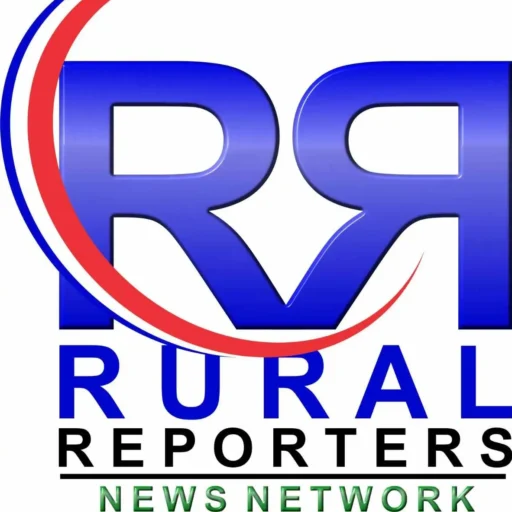By Joy Mardea Moore with the Liberia Forest Media Watch
Breaking Barriers in the Bush
In a country where women have long battled against the odds to claim leadership space, Liberia continues to witness a growing wave of female empowerment across key sectors—most notably in governance, development, and now, the once male-dominated forestry industry.
From Nobel Peace laureates Ellen Johnson Sirleaf and Leymah Gbowee to the deliberate gender-inclusive policies of the Boakai administration, Liberian women are stepping boldly into roles once seen as unreachable. But while top-level appointments and public declarations grab headlines, it is the everyday experiences of women on the ground—those working in tough terrains and technical departments—that truly reflect the evolving story of gender equity.
A Voice in the Forest: Gertrude Korvayan Nyaley
One such woman is Gertrude Korvayan Nyaley, the Deputy Managing Director for Commercial and Technical Services at the Forestry Development Authority (FDA). With years of hands-on experience, Mrs. Nyaley has become a symbol of resilience, professionalism, and vision within the FDA.
Speaking in a recent interview with the Liberia Forest Media Watch (FMW), she described her workplace as both welcoming and productive. According to her, the opportunities she has received are not a result of favoritism but of commitment and competence.
“I’ve worked hard to remain relevant,” she said. “In the Technical Services Department, women represent only about 20% of the workforce compared to 80% men—and most of us are in administrative positions.”
Redefining Forestry for Women
Mrs. Nyaley acknowledged that forestry has traditionally been viewed as a male profession, largely due to its physical and environmental demands—like staying in remote forests for days or weeks, far from family. These expectations, she says, historically discouraged many women from joining.
“The functionalities of this profession used to scare women away. But things are changing,” she affirmed. “More women are now taking the bold steps and accepting the sacrifices that come with this field.”
She credited advancements in technology and media, particularly outreach platforms like the Forest Hour Talk Show, for making forestry more accessible and understandable to women, sparking new interest in the sector.
Facing Bias with Bravery
Despite this progress, Nyaley highlighted persistent gender-based biases from male colleagues who often question women’s competence. “They ask questions like, ‘Can she do the work? Can she perform like a man?’ which is unfair,” she shared. “Many men assume a woman is incapable just by looking at her, which is far from the truth.”
Yet, she remains undeterred. Women at the FDA, she noted, continue to challenge these stereotypes by excelling in their roles. “Women have equal potential and, in some areas, can even outperform men. We have great men, but women provide very good leadership,” she added.
Nurturing the Next Generation
Mrs. Nyaley encourages young women to embrace fieldwork and not remain confined to administrative roles. “Most women prefer to stay behind the desk. But before I got here, I started in the field,” she said. “That’s where you gain the depth of knowledge in this profession.”
She emphasized that the forestry sector offers internal training and international scholarship opportunities, particularly for women in community-related departments. “Some of our women staff have traveled abroad for advanced studies. These opportunities exist to help them grow,” she said. She also reassured aspiring female professionals that the sector is safe and welcoming.
Looking ahead, her dream is clear:“My dream is to see a woman become Managing Director of FDA—one who can steer the sector to a level of change so impactful that even a five-year-old will notice.”
Policy Backing for Gender Inclusion
Mrs. Nyaley’s testimony reflects broader national trends. In his 2025 State of the Nation Address, President Joseph Boakai reiterated his commitment to gender inclusion, reporting that 35% of leadership roles in his administration are now held by women. “Empowering women is not a matter of debate; it is a strategic imperative,” President Boakai declared.
First Lady Katumu Boakai echoed this sentiment during International Women’s Day: “We are no longer asking for a seat at the table. We are building our own table—with women at the center.”
Hon. Gbeme Horace-Kollie, Liberia’s Gender Minister, also reported at the United Nations Peacebuilding Commission meeting in May 2025 that female representation in the Armed Forces of Liberia had increased from 3% to 7.5%, attributing the growth to deliberate affirmative action policies.
Shifts Across the Forestry Sector
Signs of transformation are evident even in community-level forest governance. At its 15th anniversary celebration in Gbarnga, Bong County, the National Union of Community Forestry Development Committees (NUCFDCs) elected its most gender-balanced leadership team to date. Five of its eight officers are now women.
“This election is not just about leadership; it’s about setting a new standard for gender equality,” the organization stated. This change coincided with the union’s 7th General Assembly and 5th democratic elections, signaling rising momentum for female leadership in community forestry.
Organizations such as ClientEarth, Heritage Partners and Associates (HPA), and the Foundation for Community Initiatives (FCI) are playing a critical role in this shift by training women on their legal rights in forest management and providing them with a simplified guide to Liberia’s forest laws—nicknamed the “forest Bible.”
Julie Weah, Former Executive Director of FCI and now Executive Director for FGGDI, who led the training, emphasized: “Men can’t, and legally should not, do it alone.”
A Forested Future, Led by Women
As more Liberian women take up leadership roles, they are not only shaping the future of sustainable forest management—they are also paving new paths for social and economic empowerment across rural communities.
Liberia’s journey toward gender equality is still ongoing. But women like Gertrude Nyaley are already leading from the frontlines—in the forests, boardrooms, and policy chambers. “We’re not just making space for women,” Nyaley concluded. “We’re showing why we should have always been here.”
This story was published as part of the Liberia Forest Media Watch effort to strengthen opportunities for rural female journalists to produce print and radio news stories on natural resource with support from the European Union through the French Development Agency.



